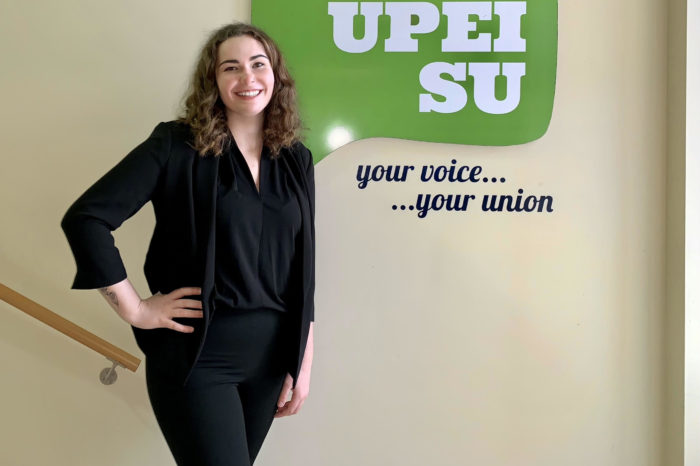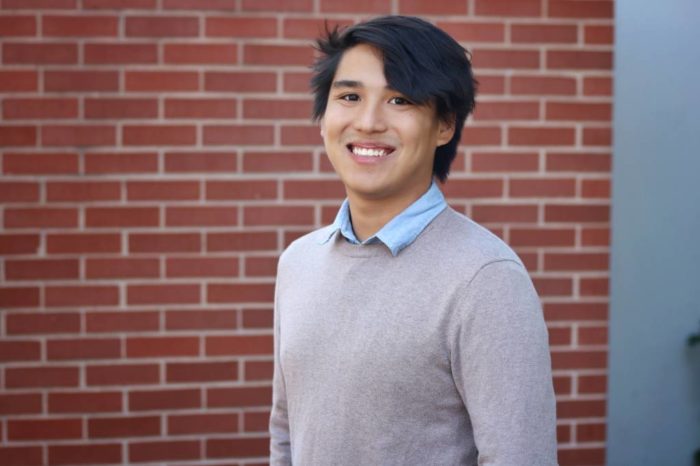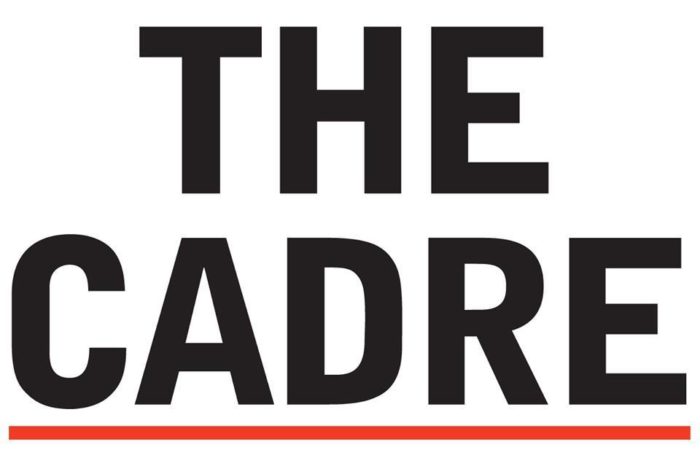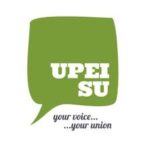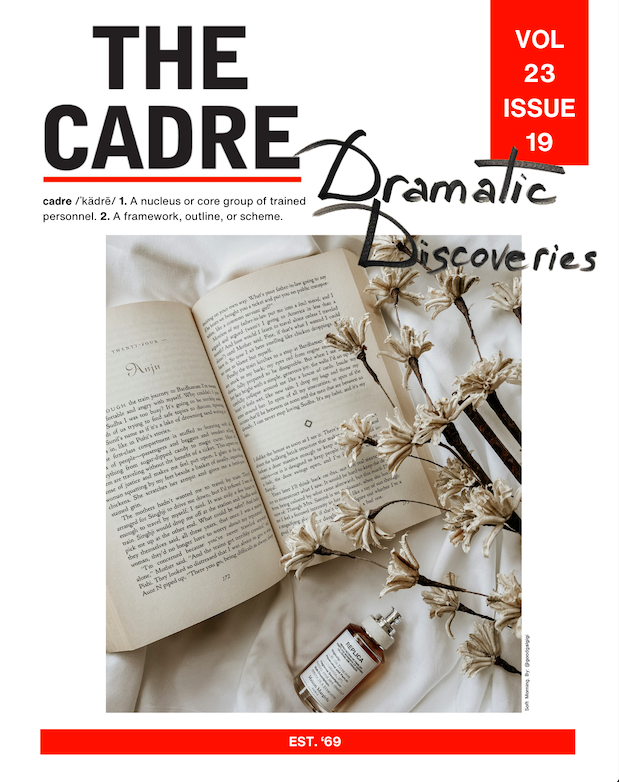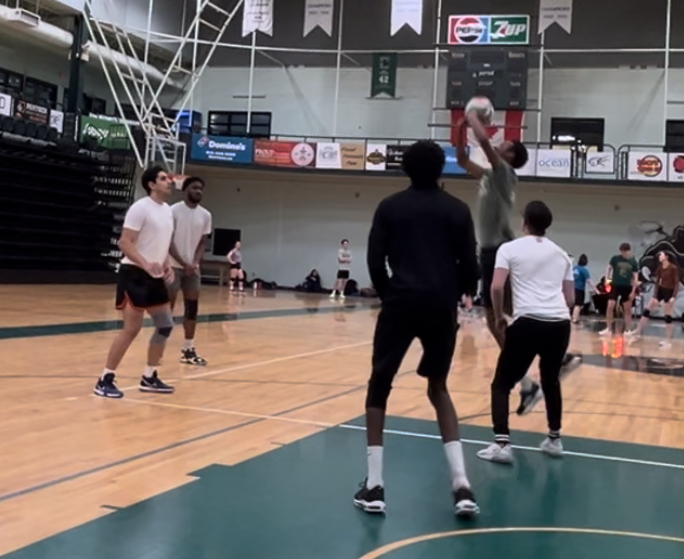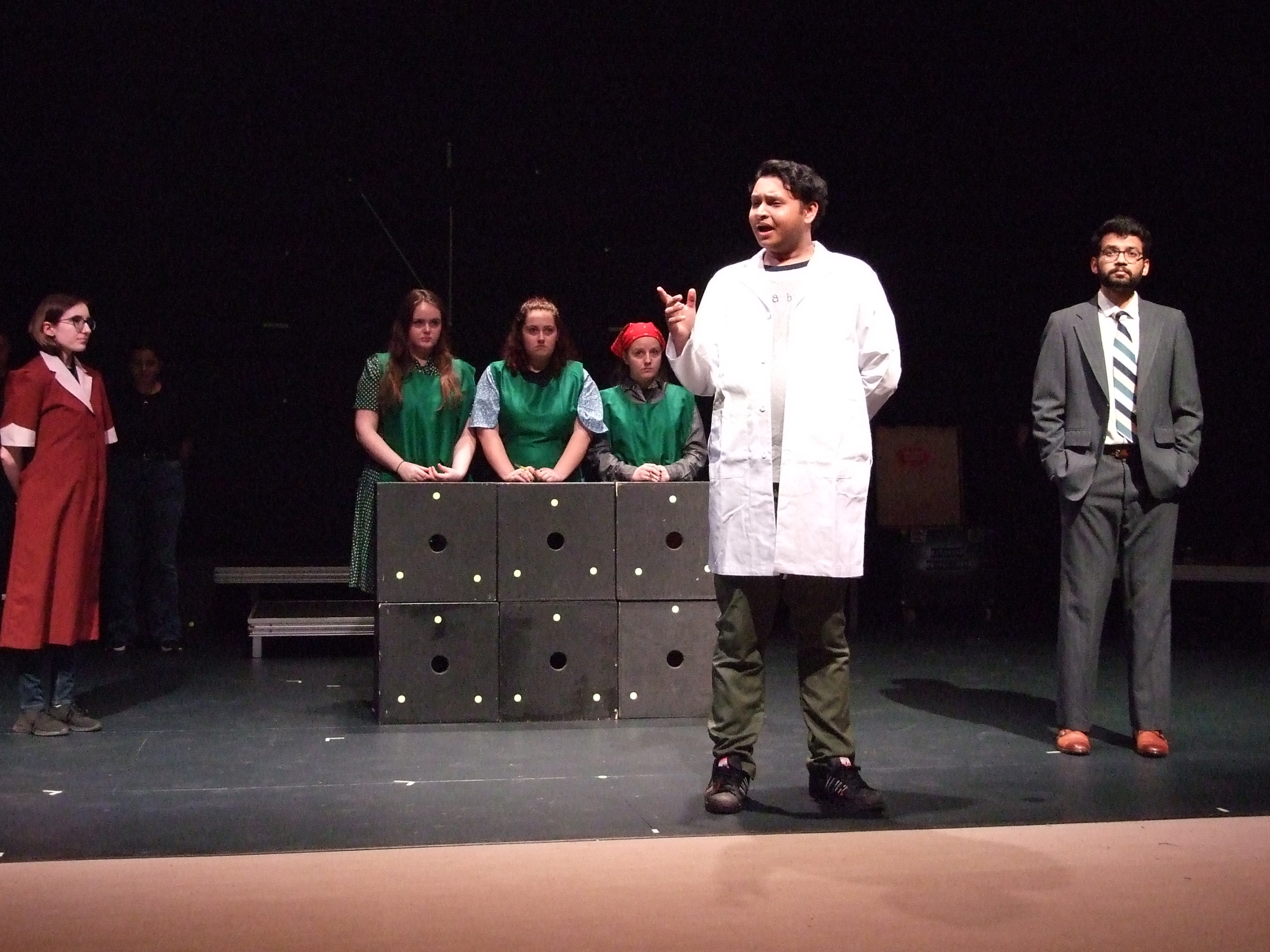By: Drew MacEachern
UPEI’s Student Council met for the first time this year last Sunday evening. The meeting started a little before six and began with an overview of technical issues led by Chair of Council Bob Deziel. These focused around Robert’s Rules of Order and the technicalities of the SU website, where agenda items are formed, councillor’s reports are posted, and important potential by-laws or other documents are posted.
Commencement, Conflict of Interest, and Reports
After this the actual meeting was commenced at 6:03pm. VP Academic and External John Rix called a point of order during the approval of the agenda to include a Conflict of Interest declaration after the swearing-in of new councillors, in accordance with the new conflict of interest by-law passed by the SU during the summer. Following the approval of the agenda, the new councillors were sworn in, as well as the new deputy chair. The new interim members of the executive, Alex Heighington for VP Communications and Zach Tweel for VP Finance were sworn in.
Councillor Luke Poirier questioned why this new policy was needed when councillors had been self-reporting on their conflicts in the past. Rix and Heighington then responded that it made sure that the SU was being proactive on conflicts of interests and that it helps councillors hold each other accountable as well. Poirier then also wanted further clarification on what exactly should be declared. UPEISU President Dana Kenny then explained that you should declare anything you are involved with on campus, whether societies or work related; any area of life in which your activities
The executives then moved on to their reports. Kenny announced that he posted his 7-page report to the SU website and reviewed several key point such as working with Rix on the national ‘Get Out the Vote’ campaign, attending several conferences such as a mental health conferences and working on other changes in Student Union priorities. Rix’s report began by mentioning his work on several research projects that were assigned by the Council at the end of last year. He also noted that he felt that some of them were obsolete in the current political climate (having been devised before the provincial election finished) and advised council to focus on external policy on following up on the new Liberal Governments electoral promises. He also wrote several new reports, including getting academic credit for completing English prep courses, that were discussed later in the meeting.
VP Student Life Nathan Hood also posted his report online and gave a brief synopsis, including attending a COCA conference [Canadian Organization for Campus Activities], creating a volunteer matching program, and working on new Student Life Awards. He also told councillors that they aren’t VIPs at Wave events and to not “act entitled†when they attend events. Communications VP Heighington next presented her report. She mentioned new changes to the website and the activities of the new Wave promoter Kaylee Blackett. Tweel’s report focused on his transition efforts, having been elevated to the position of VP Finance last week after the resignation of former VP Dimitri Zukhalin for health reasons.
Executive Mandates
They then delivered executive mandates that were put in place at the end of last year. The mandates broadly cover four different pillars; Building Community, Reputation & Reputation, Strengthen the Student Union, and Member Engagement & Satisfaction. Kenny’s mandates included planning an Outreach Week in the first semester developing and implementing a Councillor Transition Program, creating an S.U. Financial Contingency Plan, and beginning “purposeful dialogues†around issues such as Sexual Assault Awareness, a new tobacco policy and other new policies.
Rix then presented his mandate. He noticed his difficulty in aligning his reports and mandates with the four pillars just outlined, as it is an internal document whereas he deals with advocacy work outside the Student Union. However, he did outline his several main initiatives. These include creating an advocacy team to form a bridge between the VP Student Life and the VP Academic and External to promote advocacy as a part of student life, planning advocacy meetings with all parties, 13 MLAs and departmental staff at the Department for Workforce and Advanced Learning, community outreach, and improving media work, outreach and coverage.
Hood’s mandate, in accordance with the four pillars, focused first on building community. His strategy focused on facilitating volunteer opportunities in particular through a volunteer matchmaker program to match students and volunteer organizations along. He also planned to review all student events to decide on their viability through a new student feedback mechanism. Spontaneously deciding to walk around the room while explaining his goals, Hood also announced his intention to make UPEI a leader in Atlantic Canada for clubs through such initiatives as the Future Executive Development Program, the creation of a clubs coordinator position, a new student life recognition awards program, and a society strategic plan.
By-Law Changes
By-law changes were up next. Chair Bob Deziel explained the by-law change procedure; they are presented to Council and debated the first week they are presented. It will then be voted on at the next council meeting and, if passed by a two-thirds majority, will be in effect the following week.
One change is to make it policy for SU executives to be publically non-partisan for the duration of their term, instead of only required to be non-partisan during advocacy meetings. Rix explained that it helped make the non-partisanship policy more effective and all encompassing. Another one made VP Life as the primary delegate to Canadian Organization of Campus Activities and to be responsible for on-campus advocacy for non-academic issues (for example the conflict between the UPEI field hockey teams and the AUS).
There were major changes to the Sub-Organization By-Law. Among many changes, it clarifies that the ratification any partisan organization does not equal approval of that organization’s stances and that the SU cannot censor that organization unless it meets certain criteria if it doesn’t meet the aims of the SU, which they can appeal in writing to the council. It is also now mandatory for the clubs to have at least 3 executives including a VP Finance. They also have to submit a budget after one year while failure to do so will deny them the ability to receive funding from the SU.
VP Communications Referendum Question
There was then a notice of potential referendum questions presented by President Dana Kenny. In order to change the UPEISU Constitution, the Executives must present potential referendum questions to council. At the next meeting it will be voted on and if it passes a two thirds vote, it will go on to be voted on by the general student population.
The question proposed was whether you would vote yes or no on changes to the executive structure from two hired position to one hired position. There are currently five executive positions, three elected and two hired, namely the VP Finance and the VP Communications. The VP Communications position has existed for the past four or five years, however, the Executive is considering getting rid of the position. Kenny explained that most organizations do not have a VP Communications; instead having a director or manager of communications. He explained that this would free up the position to focus on communication duties without having to chair committees or present to council, while also bringing the position under the management of a member of the executive. Councillor Pierce Smith asked if the question would go to the student population as presented. Smith then asked if they could clarify it to specify that it would be removing the position of the VP Communications. Kenny specified that there can be a clarifying note underneath, but can’t mention the position itself due to the fact that the Constitution only mentions hired positions and does not name them specifically.
Councillor Luke Poirier wanted further explanations behind the reasoning, fearing that it would keep the person in charge of communications outside of the loop for the executive. Kenny explained that the decision was based on observations and that it gives the Executive more authority to supervise messaging as an authority. Interim and former VP Communications Heighington expressed her support of the motion and said many of Kenny’s explanations lined up with her experience of the nature of the position. Councillor Pierce Smith wanted clarification of who the new Director would work under; Kenny clarified that it would be under the President. He then clarified that they would have to call an extraordinary meeting sometime before September 23rd in order to present it to students and have it voted on during the upcoming councillor elections.
Society Ratification and the Revolutionary Student Movement
After going in camera to discuss privately, the council went forward with society ratifications. VP Student Life Nathan Hood abstained from all votes for conflict of interest reasons, as he deals with all societies on campus and presents them for ratification in council. The Campus Alliance for Reproductive Justice, Canadian Catholic Student Association, Chess Club, Chinese Knot, Enactus, Get Real UPEI, the International Student Christian Fellowship, PASS, Pre-Med Society, Rainbow Alliance, SAVS, UPEI Panther Pantry, UPEI Philosophy Society, and UPEIPROLOL, a League of Legends club, were all ratified.
When it came to the ratification of the Revolutionary Student Movement, Councillor Luke Poirier spoke out against ratifying the society since their views do not align with the goals of the SU. Councillor Joel Hansen clarified that the views specifically were the “alluded violence†present in their promotional materials. With Hansen and VP Hood abstaining, the rest of the councillors voted to decline ratifying the RSM.
External Policy Documents
VP Academic and External John Rix then presented his revisions to the SU’s external policy documents. The first document entitled “Ensuring Adequate Student Loan Funding Availability†featured little revisions, merely an update on the figures of the students meeting the current funding cap. The next policy was “Exempting parental income as an asset for Student Loan Assessmentsâ€. John’s revisions included data from the New Brunswick government’s adoption of that policy and the federal government’s scaling back of parental income requirements, as well as some clarifications in the document. “Professorial Accountability and Review†had a section added where the SU will advocate a student representative on the collective bargaining panel for faculty disputes.
Rix then made a motion to bring his new policy “Establishing a multi-year funding agreement. This is an expanded update . Rix explained that the university’s funding has fluctuated year after year and the university does not know how much money. The only problem Rix addressed was that the agreements only go for three years. Rix suggested a four year ‘rolling budget’, where the budget will be set for a four year period and, after the end of one year, the another year will be added accounted for to ensure the university always knows its funding four years in advance. He then amended out “the ask†for a multi-year funding agreement under the policy “Tuition Regulation at UPEIâ€.
He also brought another new policy looking to provide academic credit to international students who complete EAP courses. Rix explained that international students pay extra fees to attend university and that it is unfair for international students who fail the CAN or IELTS English Proficiency Test to have to pay to take EAP (English Academic Preparation) for up to one or two years which they get no credit for. Rix suggested that a block credit could be transferred and created into an academic credit upon completion of the EAP program to get around the technicality the International Relations Office, which oversees EAP, is not a faculty and cannot give credit for courses under the University’s faculty agreement. He also recommended that the University hire a second international student advisor.
Rix then made a motion to extend the completion date for the SU’s 12-Month Calendar policy. Rix had planned to introduce a motion to advocate for an academic calendar that covers all fall, winter and summer semesters. However, the university researcher he had planned to crunch the numbers for raw data was on vacation all summer and told him that she had other research projects to work on and that she would get back to him ASAP. Council debate and suggested extending the presentation of the policy to the Oct. 19th meeting of the Council, which would hopefully incentivize the researcher to work on the calendar.
Advocacy Team Proposal and Committee Creation
Rix then presented a motion to discuss the Advocacy Team Proposal. Rix explained that they want to create a new student advocacy group on the same model as the UPEI Street Team created last year to promote SU activities. The Advocacy Team would try to promote and push students to engage in student advocacy with government. Rix wanted to create a team to research and head this. The committee that would oversee this group would be composed of three councillors, 3 students-at-large, student volunteers, and the Policy and Research Coordinator. This then led into a discussion of the creation and make-up of various committees.
The next council meeting will be held on Sept. 27th.

